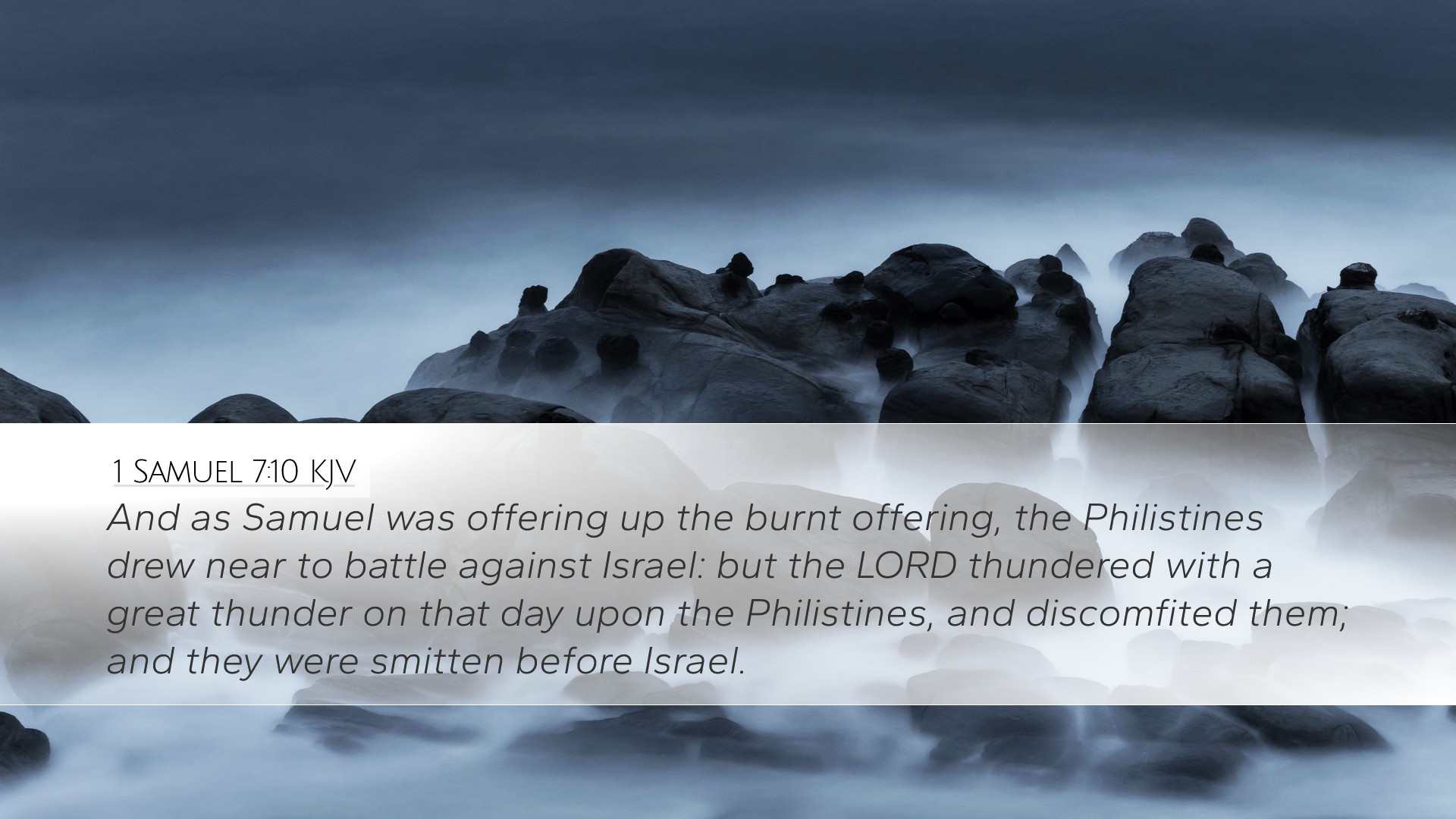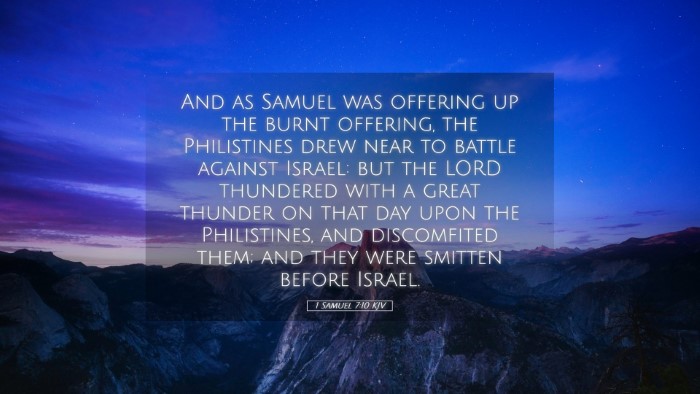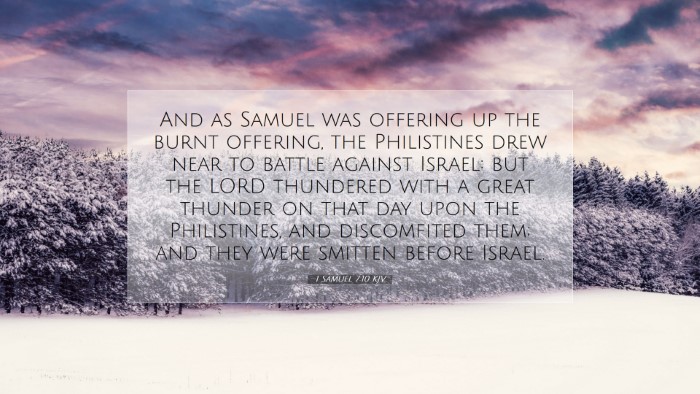Commentary on 1 Samuel 7:10
1 Samuel 7:10 states, "And as Samuel was offering up the burnt offering, the Philistines drew near to battle against Israel: but the Lord thundered with a great thunder on that day upon the Philistines, and discomfited them; and they were smitten before Israel."
Context and Setting
In this verse, we find ourselves in the midst of a significant moment in Israel’s history. The people of Israel, having turned back to God following a period of idolatry and moral decline, cry out for His assistance against their oppressors, the Philistines. This moment captures the essence of their spiritual journey as they return to rightful worship and seek God’s help in their distress.
Commentary Insights
Divine Intervention
As highlighted by Matthew Henry, the key theme of this verse is the intervention of God in response to His people's pleas. While Samuel is engaged in offering a burnt offering, a symbol of atonement and devotion, the Philistines launch an attack. However, this act of worship triggers divine action:
- God's Sovereignty: The thunder represents God's sovereignty over the natural order and His ability to aid His people in their time of need. This event signifies that God is both present and active.
- Prophetic Confirmation: Samuel's role as both priest and prophet emphasizes that prayer and sacrifice invoke God’s promised protection for Israel.
The Symbolism of the Burnt Offering
The burnt offering symbolizes total dedication to the Lord. Albert Barnes elaborates that this act reflects the Israelite's renunciation of their sins and their complete reliance upon God for deliverance:
- Repentance and Worship: The act of offering signifies repentance and the return to worship, illustrating the restored relationship between God and Israel.
- The Role of Sacrifice: It serves as an acknowledgment of God's holiness and a means through which Israel seeks reconciliation with God.
The Nature of God’s Response
God’s answer comes in the form of thunder which confounds the enemy. Adam Clarke notes that this represents not only a miraculous intervention but also a manifestation of divine power that ensures the victory of Israel:
- Fear and Confusion: The thunder discomfited the Philistines, creating panic and disorder among their ranks, leading to their defeat.
- God’s Presence in Battle: This moment illustrates that God fights alongside His people, and His presence guarantees victory over their foes.
Theological Implications
This event solidifies several theological truths:
- The Importance of Faith and Obedience: The verse emphasizes the necessity of returning to God, suggesting that faith and obedience are fundamental to experiencing His deliverance.
- Prayer and Sacrifice: The passage indicates that sincere prayer and coming before God with offerings can lead to miraculous outcomes in times of distress.
- God as Defender: It reassures believers that God is a defender of those who seek Him earnestly, providing support during their battles against any form of opposition.
Practical Applications
For pastors, students, theologians, and scholars, this passage offers rich insights for application:
- Encouragement during Trials: Believers are reminded to remain faithful in worship and commitment to God, especially during times of challenge and opposition.
- Fostering a Life of Worship: The necessity of integrating prayer, worship, and sacrificial living into daily life encourages a more profound relationship with God.
- God's Power in Our Lives: Recognizing and proclaiming God’s power can embolden believers to face adversities knowing that God acts on behalf of those who trust in Him.
Conclusion
This passage from 1 Samuel exemplifies a turning point for Israel—marked by repentance through a burnt offering and a powerful demonstration of God’s might through thunder. The insights from Matthew Henry, Albert Barnes, and Adam Clarke remind readers that divine help often arrives in the most unexpected ways when one is earnestly seeking and serving the Lord.


